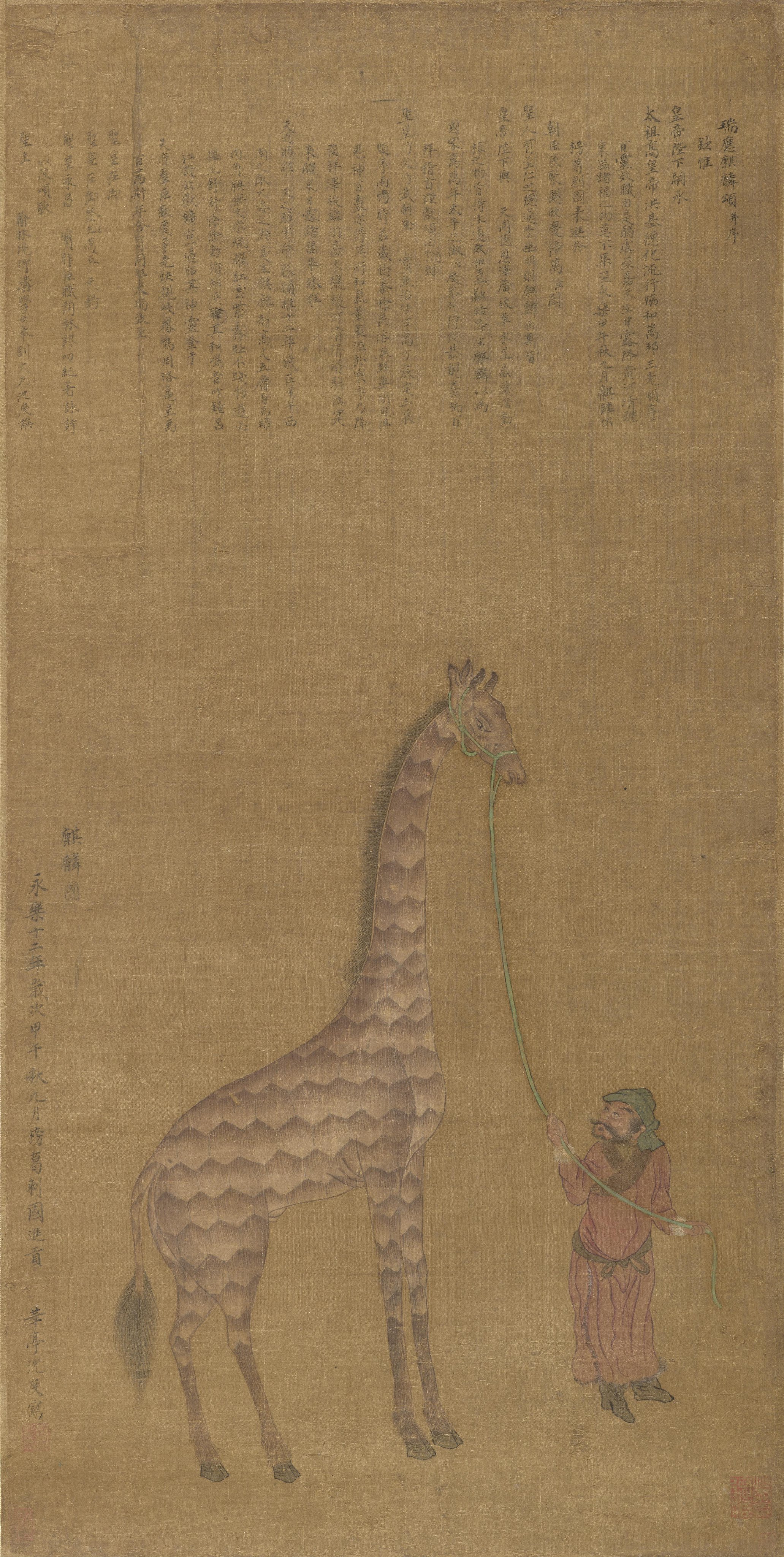Saifuddin Hamza Shah on:
[Wikipedia]
[Google]
[Amazon]
Saifuddin Hamza Shah (, ) was the fourth
 The reasoning behind the death of Hamza's father, Sultan Ghiyasuddin Azam Shah, is contested between a natural death or an assassination plotted by Raja Ganesha, the Hindu zamindar of Bhaturia who gained prominence in the Sultanate court.
Following the death, Hamza assumed the throne with the grand title of "''Sultan-us-Salatin''", meaning '' Sultan of Sultans'', in 1420 CE with the support of the court nobles. He began minting coins in his name from cities such as Satgaon, Muazzamabad and Firuzabad. Hamza also maintained a good relationship with the Yongle Emperor of Ming China, and had an heir named Muhammad bin Hamzah.
The reasoning behind the death of Hamza's father, Sultan Ghiyasuddin Azam Shah, is contested between a natural death or an assassination plotted by Raja Ganesha, the Hindu zamindar of Bhaturia who gained prominence in the Sultanate court.
Following the death, Hamza assumed the throne with the grand title of "''Sultan-us-Salatin''", meaning '' Sultan of Sultans'', in 1420 CE with the support of the court nobles. He began minting coins in his name from cities such as Satgaon, Muazzamabad and Firuzabad. Hamza also maintained a good relationship with the Yongle Emperor of Ming China, and had an heir named Muhammad bin Hamzah.
Sultan
Sultan (; ', ) is a position with several historical meanings. Originally, it was an Arabic abstract noun meaning "strength", "authority", "rulership", derived from the verbal noun ', meaning "authority" or "power". Later, it came to be use ...
of the first Ilyas dynasty of Bengal
Bengal ( ) is a Historical geography, historical geographical, ethnolinguistic and cultural term referring to a region in the Eastern South Asia, eastern part of the Indian subcontinent at the apex of the Bay of Bengal. The region of Benga ...
reigning from 1410 to 1412.
Early life and background
Hamza was born in the 14th-century into a ruling classBengali Muslim
Bengali Muslims (; ) 'Mussalman'' also used in this work./ref> are adherents of Islam who ethnically, linguistically and genealogically identify as Bengalis. Comprising over 70% of the global Bengali population, they are the second-largest ...
Sunni
Sunni Islam is the largest branch of Islam and the largest religious denomination in the world. It holds that Muhammad did not appoint any successor and that his closest companion Abu Bakr () rightfully succeeded him as the caliph of the Mu ...
family known as the Ilyas Shahi dynasty, in the Bengal Sultanate
The Bengal Sultanate (Middle Bengali: , Classical Persian: ) was a Post-classical history, late medieval sultanate based in the Bengal region in the eastern South Asia between the 14th and 16th century. It was the dominant power of the Ganges- ...
. His father, Sultan Ghiyasuddin Azam Shah, was the grandson of Shamsuddin Ilyas Shah – the founder of the ruling dynasty as well as the nation. Hailing from what is now eastern Iran
Iran, officially the Islamic Republic of Iran (IRI) and also known as Persia, is a country in West Asia. It borders Iraq to the west, Turkey, Azerbaijan, and Armenia to the northwest, the Caspian Sea to the north, Turkmenistan to the nort ...
and southern Afghanistan
Afghanistan, officially the Islamic Emirate of Afghanistan, is a landlocked country located at the crossroads of Central Asia and South Asia. It is bordered by Pakistan to the Durand Line, east and south, Iran to the Afghanistan–Iran borde ...
, Hamza's family was of Sistan
Sistān (), also known as Sakastān (, , current name: Zabol) and Sijistan (), is a historical region in south-eastern Iran and extending across the borders of present-day south-western Afghanistan, and south-western Pakistan. Mostly correspond ...
i ancestral origin.
Reign
 The reasoning behind the death of Hamza's father, Sultan Ghiyasuddin Azam Shah, is contested between a natural death or an assassination plotted by Raja Ganesha, the Hindu zamindar of Bhaturia who gained prominence in the Sultanate court.
Following the death, Hamza assumed the throne with the grand title of "''Sultan-us-Salatin''", meaning '' Sultan of Sultans'', in 1420 CE with the support of the court nobles. He began minting coins in his name from cities such as Satgaon, Muazzamabad and Firuzabad. Hamza also maintained a good relationship with the Yongle Emperor of Ming China, and had an heir named Muhammad bin Hamzah.
The reasoning behind the death of Hamza's father, Sultan Ghiyasuddin Azam Shah, is contested between a natural death or an assassination plotted by Raja Ganesha, the Hindu zamindar of Bhaturia who gained prominence in the Sultanate court.
Following the death, Hamza assumed the throne with the grand title of "''Sultan-us-Salatin''", meaning '' Sultan of Sultans'', in 1420 CE with the support of the court nobles. He began minting coins in his name from cities such as Satgaon, Muazzamabad and Firuzabad. Hamza also maintained a good relationship with the Yongle Emperor of Ming China, and had an heir named Muhammad bin Hamzah.
Death
Hamza's reign was interrupted by a nationwide civil war instigated by Raja Ganesha. According to the Egyptian scholars Ibn Hajar al-Asqalani and Al-Sakhawi who were alive at the time of receiving the news, Sultan Hamza Shah was murdered by his slave Mamluk Shihab in 1412. The 20th-century Indian historian R. C. Majumdar however, believes that Shihab was Hamza's son and did not kill Hamza but rather succeeded him after his death.See also
* List of rulers of Bengal *History of Bengal
The history of Bengal is intertwined with the history of the broader Indian subcontinent and the surrounding regions of South Asia and Southeast Asia. It includes modern-day Bangladesh and the States and union territories of India, Indian stat ...
* History of Bangladesh
References
1412 deaths Sunni Muslims 15th-century Indian Muslims 14th-century births 15th-century Indian monarchs Ilyas Shahi dynasty {{SAsia-hist-stub